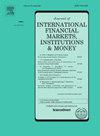When fiscal discipline meets macroeconomic stability: The Euro-stability bond
IF 6.1
2区 经济学
Q1 BUSINESS, FINANCE
Journal of International Financial Markets Institutions & Money
Pub Date : 2025-07-01
DOI:10.1016/j.intfin.2025.102196
引用次数: 0
Abstract
We study the consequences of introducing an Euro-stability bond mechanism that implies sovereign debt mutualization in the Eurozone without any significant short-term redistribution across countries or perverse incentives to fiscal profligacy. In a simple structural model of the economy, we theoretically show that this mechanism is able to reproduce the market fiscal discipline while increasing the social welfare of all countries with respect to the real market discipline. Relying on a GVAR model including 10 Eurozone countries, U.S., Japan and China, we then analyse the future evolution of public debt (and other key macroeconomic variables) over time by comparing the predicted forecast in the baseline and in a counterfactual scenarios with the Euro-stability bond. We find no significant differences in the future path of public debt-to-GDP ratios in the two cases, but a consistent reduction in the forecast’s uncertainty in the counterfactual scenario. The reduced uncertainty of forecasts of public debt and other macroeconomic variables highlights the potential capacity of the Euro-stability bond to immunize the Eurozone from classical macroeconomic instability shocks that derive by the very existence of high sovereign debts and the related significant rollover and contagion risks in a framework of decentralized fiscal policies. To this extent, we finally exploit the results of the GVAR model to assess the capacity of the proposed scheme to reduce the probability of adverse macroeconomic events.
财政纪律与宏观经济稳定:欧元稳定债券
我们研究了引入欧元稳定债券机制的后果,该机制意味着欧元区的主权债务共同化,而不会在各国之间产生任何重大的短期再分配或对财政挥霍的不当激励。在一个简单的经济结构模型中,我们从理论上证明了这种机制能够再现市场财政纪律,同时相对于真正的市场纪律增加所有国家的社会福利。基于包括10个欧元区国家、美国、日本和中国在内的GVAR模型,我们通过比较基线和反事实情景下与欧元稳定债券的预测预测,分析了公共债务(以及其他关键宏观经济变量)的未来演变。我们发现,在这两种情况下,公共债务与gdp比率的未来路径没有显著差异,但在反事实情景中,预测的不确定性一致降低。公共债务和其他宏观经济变量预测的不确定性降低,突显了欧元稳定债券的潜在能力,使欧元区免受传统宏观经济不稳定冲击的影响,这种冲击是由高主权债务的存在以及在分散财政政策框架下相关的重大展期和传染风险造成的。在这种程度上,我们最终利用GVAR模型的结果来评估所提出的方案降低不利宏观经济事件概率的能力。
本文章由计算机程序翻译,如有差异,请以英文原文为准。
求助全文
约1分钟内获得全文
求助全文
来源期刊
CiteScore
6.60
自引率
10.00%
发文量
142
期刊介绍:
International trade, financing and investments, and the related cash and credit transactions, have grown at an extremely rapid pace in recent years. The international monetary system has continued to evolve to accommodate the need for foreign-currency denominated transactions and in the process has provided opportunities for its ongoing observation and study. The purpose of the Journal of International Financial Markets, Institutions & Money is to publish rigorous, original articles dealing with the international aspects of financial markets, institutions and money. Theoretical/conceptual and empirical papers providing meaningful insights into the subject areas will be considered. The following topic areas, although not exhaustive, are representative of the coverage in this Journal. • International financial markets • International securities markets • Foreign exchange markets • Eurocurrency markets • International syndications • Term structures of Eurocurrency rates • Determination of exchange rates • Information, speculation and parity • Forward rates and swaps • International payment mechanisms • International commercial banking; • International investment banking • Central bank intervention • International monetary systems • Balance of payments.

 求助内容:
求助内容: 应助结果提醒方式:
应助结果提醒方式:


